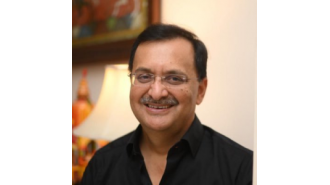A woman and her son both had incurable illnesses, but she decided to end her life through assisted dying while he did not.
Son diagnosed with cancer only 5 years after mom's death.

Brian, his wife Maggie, and their son Max embarked on a journey to Switzerland with the intention of assisting Maggie in her death. Little did they know that just a few years later, they would be faced with another heartbreaking tragedy - the loss of their beloved son Max, at the young age of 28, to a terminal illness.
Maggie had been diagnosed with secondary progressive multiple sclerosis in 2004, at the age of 45. Although she had been experiencing symptoms for many years prior, it was a devastating blow to both her and her family. As a nurse, Maggie had witnessed the pain and suffering of patients with this incurable neurological disease. She knew all too well the unpredictable and often prolonged nature of the illness, which only added to her desire to avoid a similar fate.
While everyone's journey with MS is unique, Maggie was determined to have control over her own fate. As her disease progressed and she lost her independence, she had to give up her career and feared what would come next. It was then that she started seriously discussing assisted dying with her family. Although it broke Brian's heart, he knew that as long as Maggie had the support of their children, he wouldn't stand in her way.
With the assistance of an organization in Switzerland, Maggie began the process of applying for an assisted death. Due to the laws surrounding assisted dying in the UK, they had to keep their plans secret and were forced to navigate the process like criminals. Maggie couldn't even discuss her wishes with medical professionals without risking police involvement. It was a difficult and isolating experience, but their love and support for Maggie never wavered.
In order to meet the requirements of the clinic in Switzerland, Maggie had to undergo numerous psychological assessments and provide proof of her diagnosis and the severity of her condition. She was also interviewed by doctors and a psychiatrist in the UK, as well as two more independent doctors in Switzerland. The process was rigorous, but they wanted to ensure that Maggie's decision was entirely her own.
Finally, after three years of waiting, Maggie received approval for her assisted death. It was a bittersweet moment, but also a weight lifted off her shoulders. She was able to be her old self again, with her sharp sense of humor intact. Even on her last day, she was asked multiple times if she was sure about her decision, and she confidently answered yes. As she pushed the lever to administer the medication, she was at peace, knowing that she would no longer be in pain or have to fear what would happen to her body.
Five years after Maggie's death, tragedy struck again when Max was diagnosed with Ewing's Sarcoma, a soft tissue and bone cancer, at the age of 25. Max had always respected his mother's decision to die on her own terms, but he chose to fight for his own life. He underwent grueling treatments and despite the best efforts of the NHS, he was eventually given a terminal prognosis.
Even though Max may have eventually chosen assisted dying if it had been an option in the UK, he didn't want to travel to Switzerland and potentially cut short his precious time with his family. This is a reality for many people who wish to die on their own terms, as the current laws in the UK make it difficult and even risky to do so. Max's experience was a far cry from the peaceful and dignified death that his mother was able to have.
After Max's passing, Brian couldn't help but feel like he had let his son down. It was devastating to see him suffer and wonder if he was in pain during his final moments. The staff at the hospice did their best to keep him comfortable, but it was a stark contrast to Maggie's peaceful passing. Brian believes that both Maggie and Max were failed by the current laws surrounding assisted dying in the UK.
Sadly, their experiences are not unique. Every week, one person in the UK travels overseas for an assisted death, and many more suffer against their wishes at home. This is why it is so important for parliamentarians to recognize the need for reform and take action. The recent introduction of a private member's bill by Kim Leadbeater MP to legalize assisted dying in England and Wales is a step in the right direction.
If you believe that dying individuals should have the choice to end their lives on their own terms, I urge you to speak up and share your views. This is not just about Maggie and Max, but about all of us and our loved ones. Let's work towards a future where everyone has the right to a peaceful and dignified death.
2 Views










